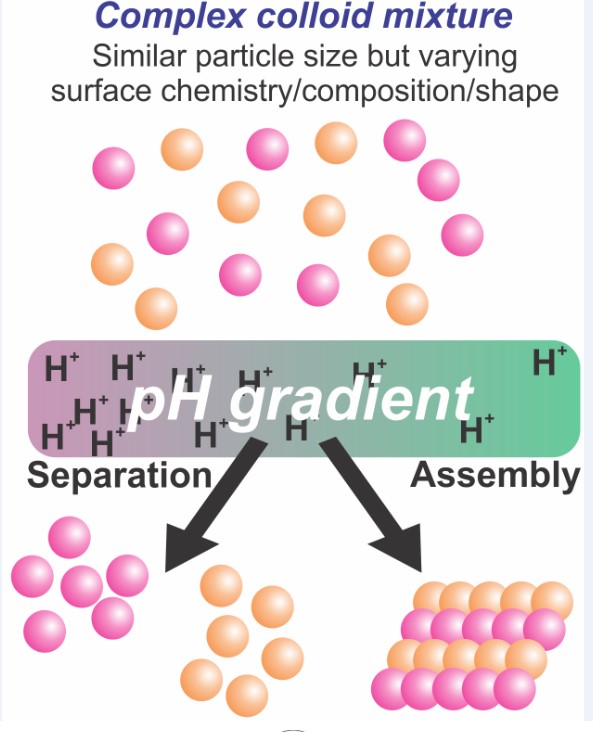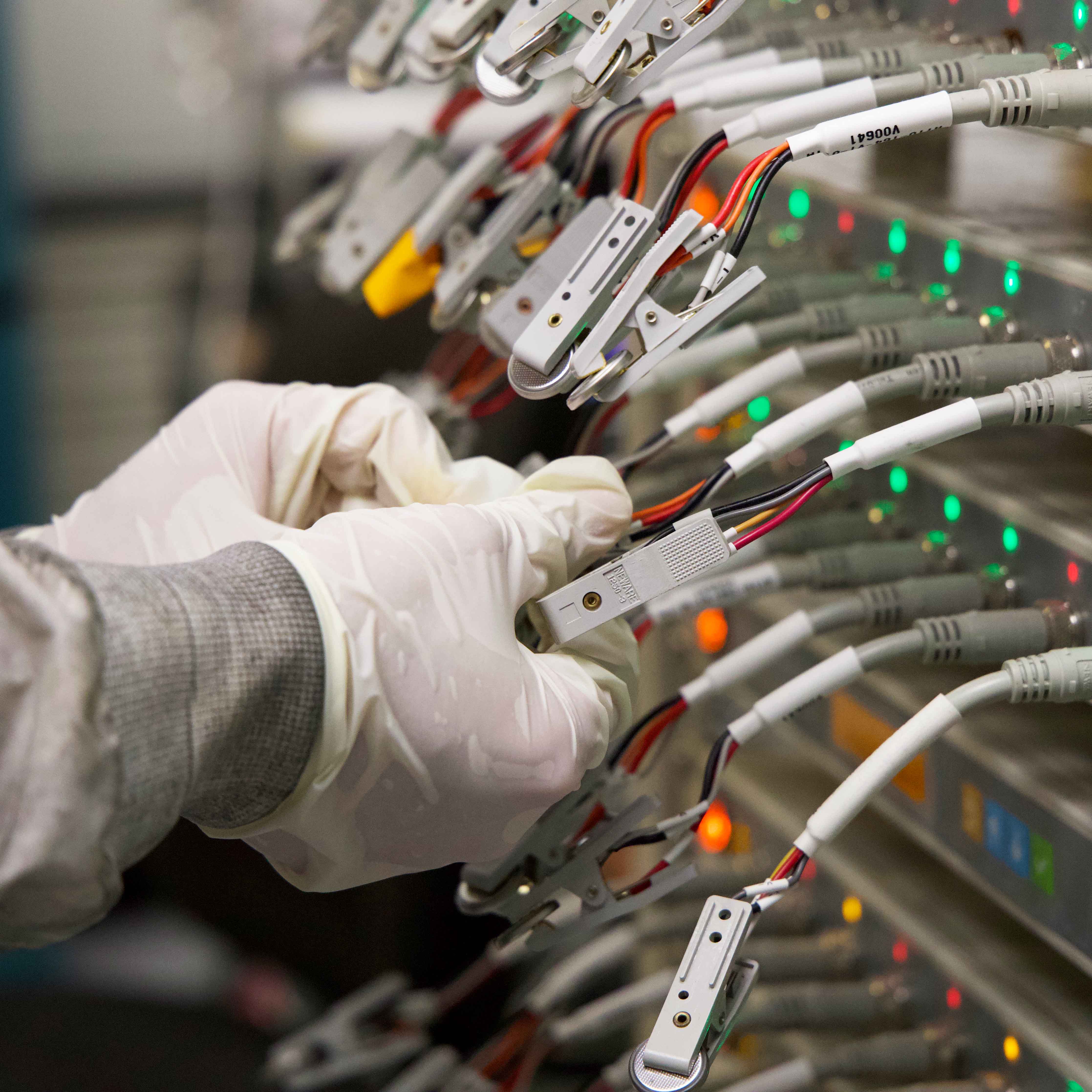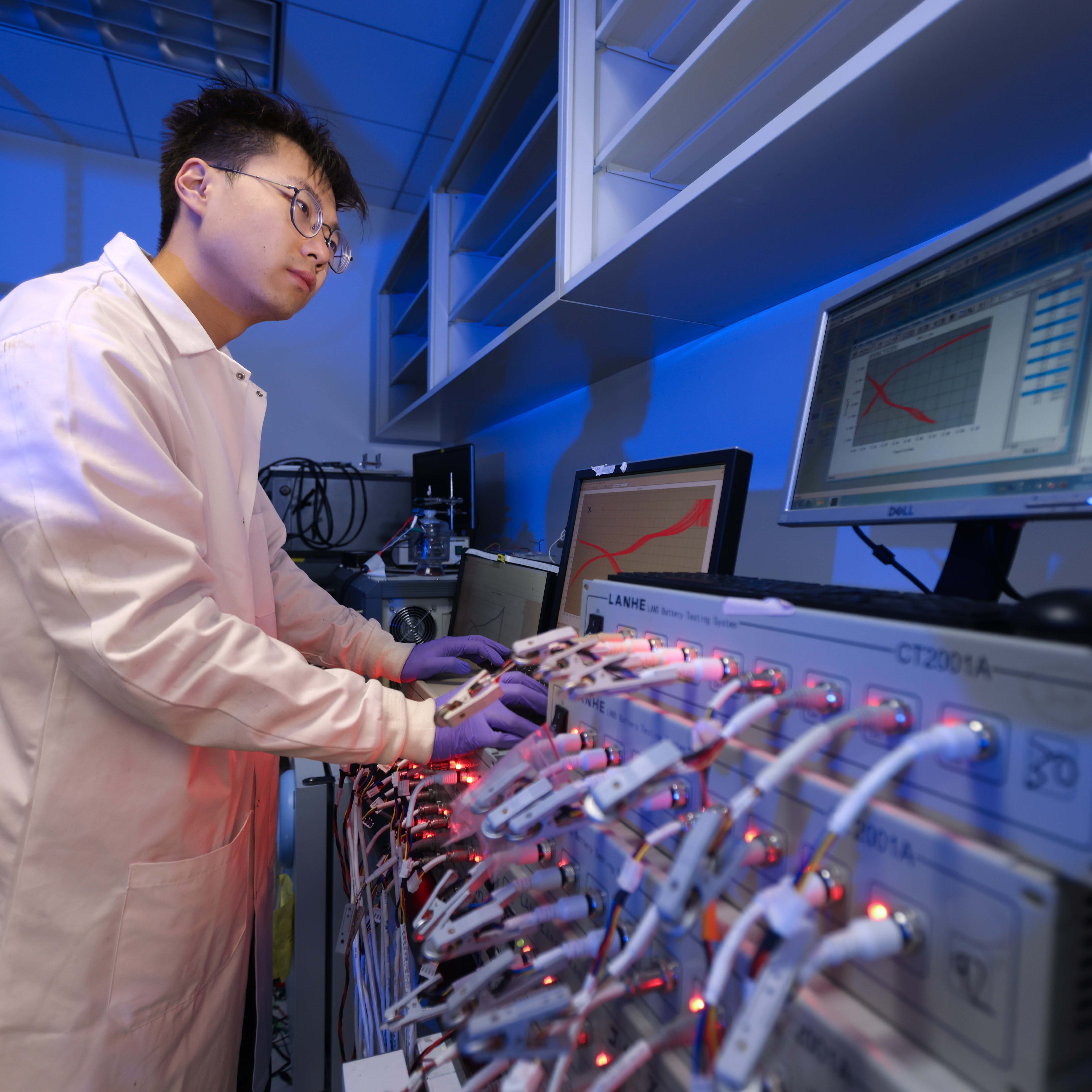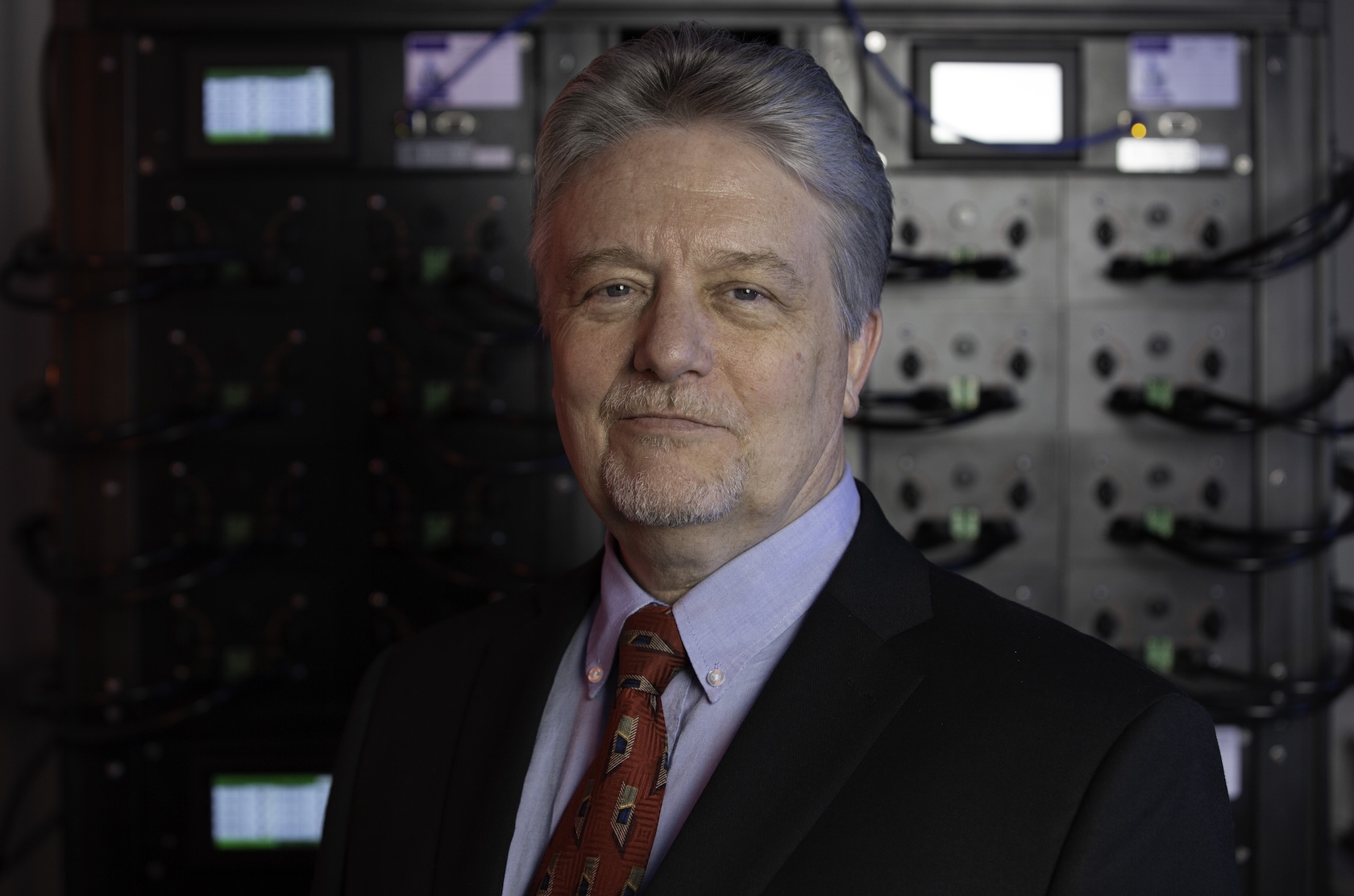News Story
Woehl Research Group Will Use $350K NSF Grant to Explore Colloidal Particle Behavior in Electric Fields and pH Gradients

Taylor Woehl, an assistant professor in the University of Maryland Department of Chemical and Biomolecular Engineering (ChBE), received a $350K grant from the National Science Foundation (NSF) Division of Chemical, Bioengineering, Environmental and Transportation Systems (CBET) for his project entitled, "Mechanistic Understanding and Control over Electrokinetic Assembly and Separation of Colloids in pH Gradients."
Colloidal particles are microscopic solid particles suspended in a solvent, such as water, and are stabilized by electrical charges on the particle surfaces. The stability and small size of the particles make them difficult to remove and manipulate within the solvent. Extracting microscopic colloidal particles is critical to many environmental and industrial applications -- for example, wastewater purification, the assessment of microplastic particles in waterways, and whole-blood assays. However, separating colloidal particles with similar size, but different composition, or surface chemistry, cannot be effectively achieved with conventional filter-based separation methods. To that end, electric fields represent a promising solution for separating colloids due to their spatial control in both large- and small-scale devices and their energy efficiency. PH gradients are traditionally used for separation of proteins based on their surface charge. However, the marriage of electric fields and pH gradients for separation of colloids has never been explored.
"This project will investigate the concurrent use of electric fields and pH gradients to manipulate micron scale colloidal particles to control their assembly and separation, and examine how particle composition, size, shape and surface chemistry impact how they behave in electric fields and pH gradients," said Woehl. “Preliminary work in our lab showed that colloids had very peculiar behavior in electric fields and pH gradients compared to electric fields alone, including levitating above the electrode surface and separating from each other based on density."
The behavior of the colloids in pH gradients and electric fields will be observed utilizing optical and confocal microscopy, and modeled with theories developed by Professor Woehl. A scaling model for the electrical forces acting on the colloids will be developed that accounts for the dynamic colloid surface charge and dipole fields in the pH gradient, which interact synergistically to control particle assembly state and levitation height. Mixtures of similarly sized particles with varying shapes and surface chemistries will be separated and assembled into bilayer colloidal crystals.
Funding will be initiated on September 1, 2020 and continue over a three-year period.
Related media:
- ChBE Research Team Receives $600K Grant, UMD, June 2020
- UMD Research Lab Receives ARO Grant to Investigate Reconfigurable Nanoparticle Assemblies, UMD, May 2020
- Taylor Woehl Receives ACS Grant, UMD, Nov 2019
- UMD’s Woehl Research Group Wins Grant to Explore Stability of Nanocomposites, UMD, Feb 2018
Published August 15, 2020









